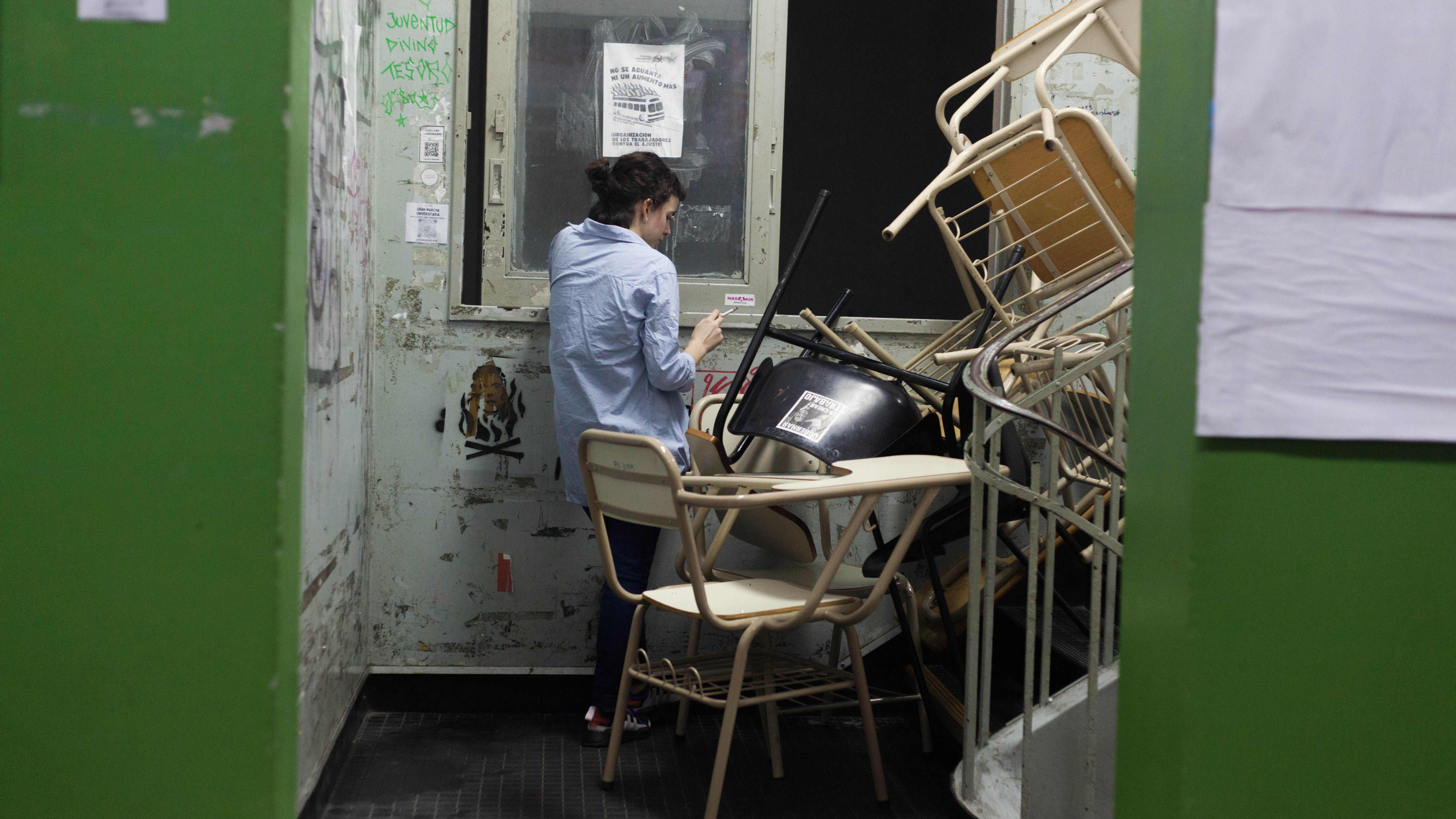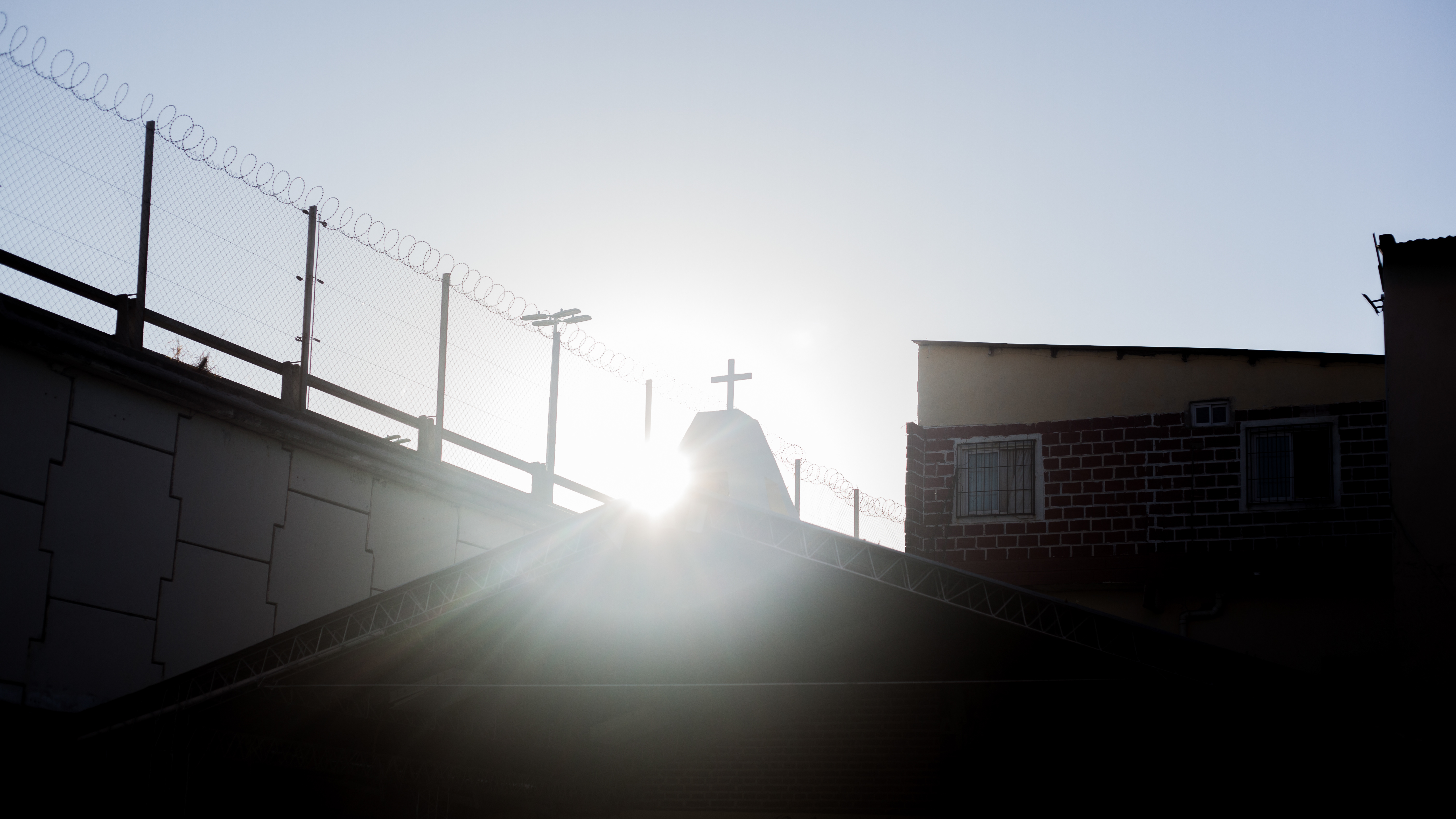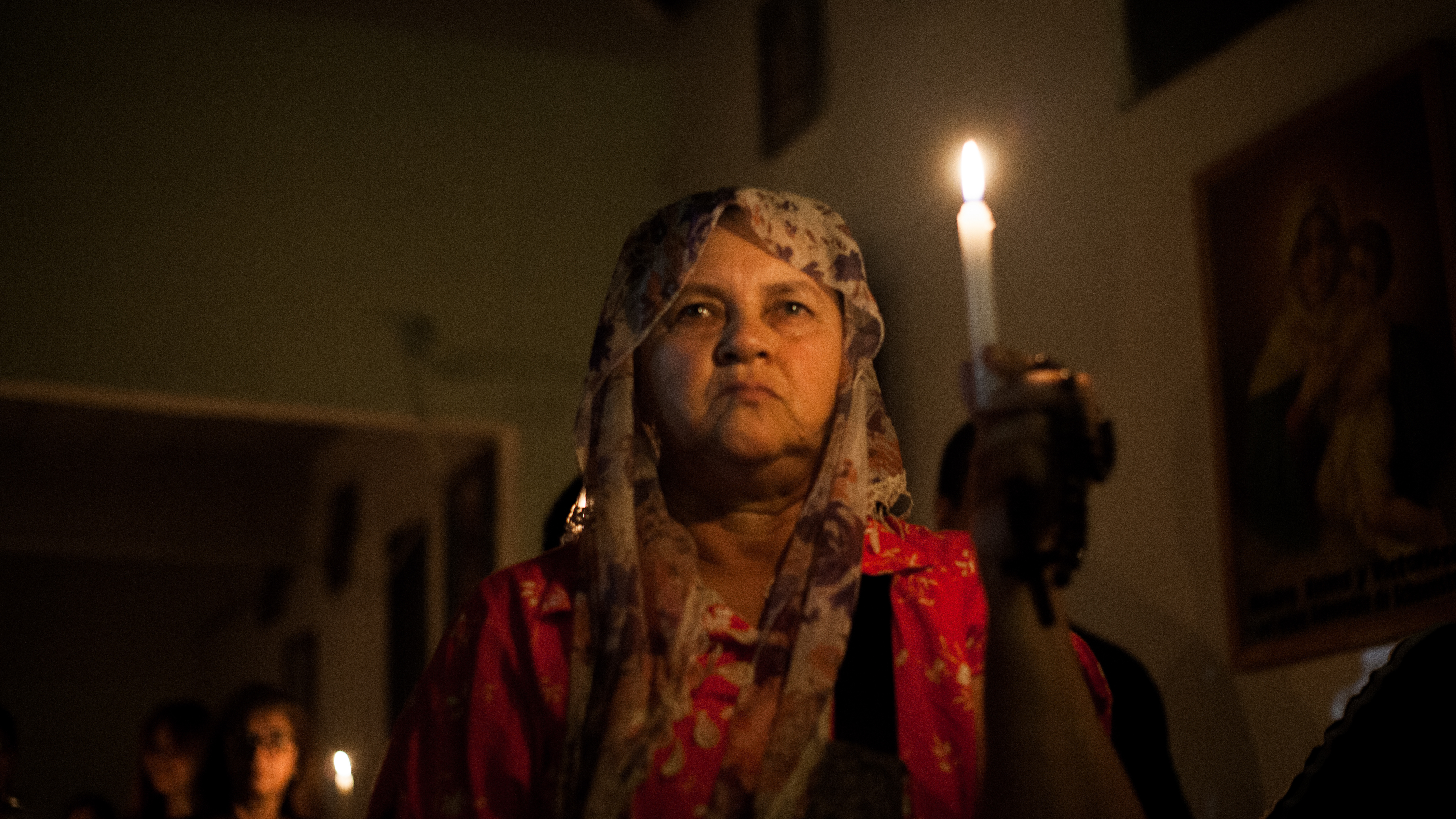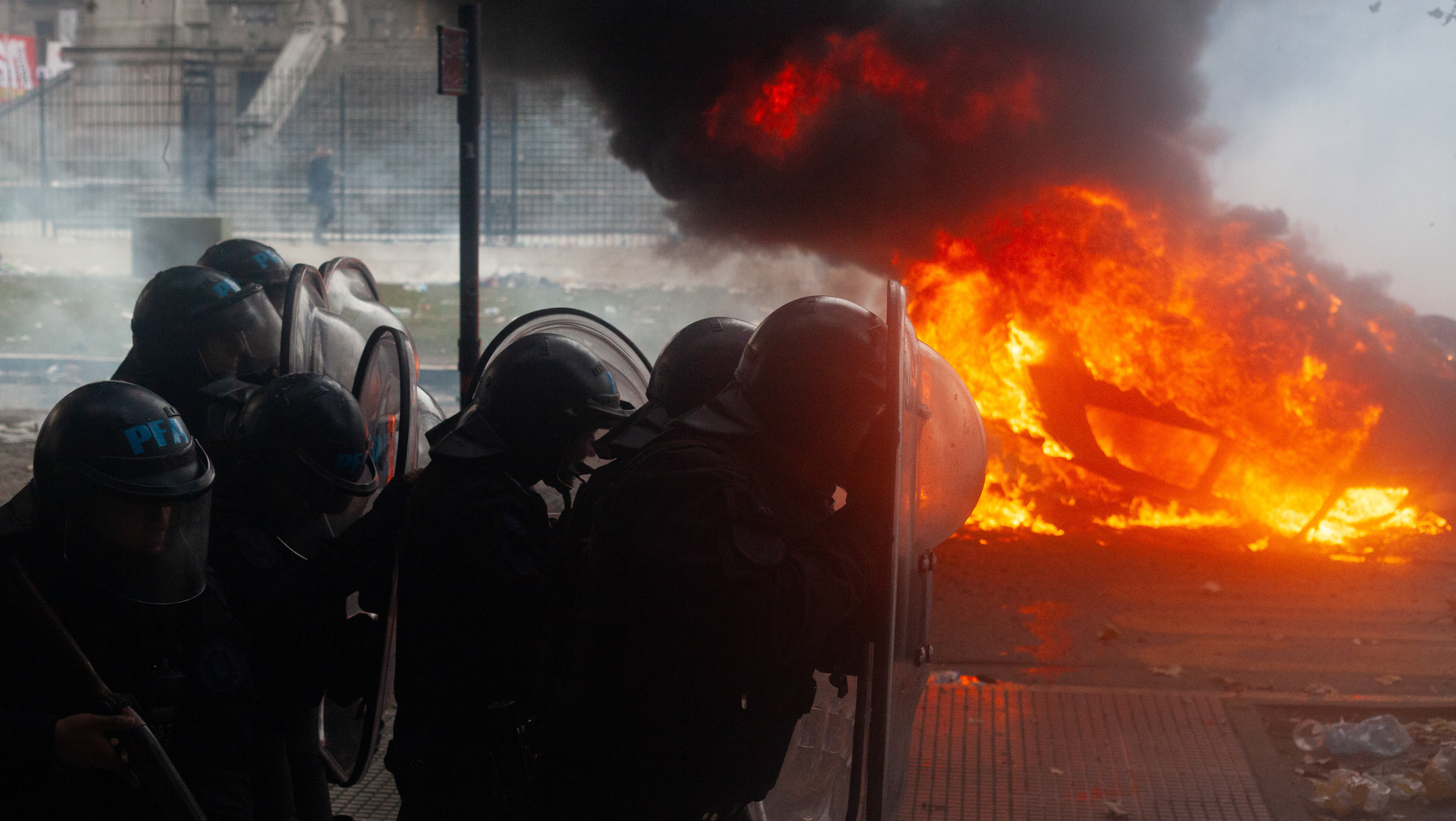In González Catán, Buenos Aires, Argentina, there's a neighborhood with dirt roads called Santa Rita. Crossing the Las Víboras stream, you'll find the El Arroyito soup kitchen. The afternoon silence allows the crackling of the wood burning to heat an old pot to be heard: "The gas bottle costs 10,000." Behind a door, five women run the soup kitchen, which feeds more than fifty people at Laura Aquino's house.
They prepare a watery stew to quell the hunger of retirees, adults, and children, as since Milei took office and decided to cut food assistance, the soup kitchen has stopped operating every day. They barely manage to open just one day a week, when they manage to gather the necessary food.
During the first half of this year, poverty reached 52% and extreme poverty 17.9%, while unemployment continues to rise.
Laura takes some meals to Javier Cuenca's house, where his wife, who receives the minimum pension, washes the family's clothes by hand. Javier shows us his house and describes the hardship of living in a place that floods every time it rains. He asks for help, confused, thinking I am a government official when I introduce myself as a journalist from La Nación. I have to clarify to each neighbor that I am visiting the soup kitchen as a newspaper photographer, as everyone is asking for help.
"We are abandoned by the state," says Laura Aquino.



